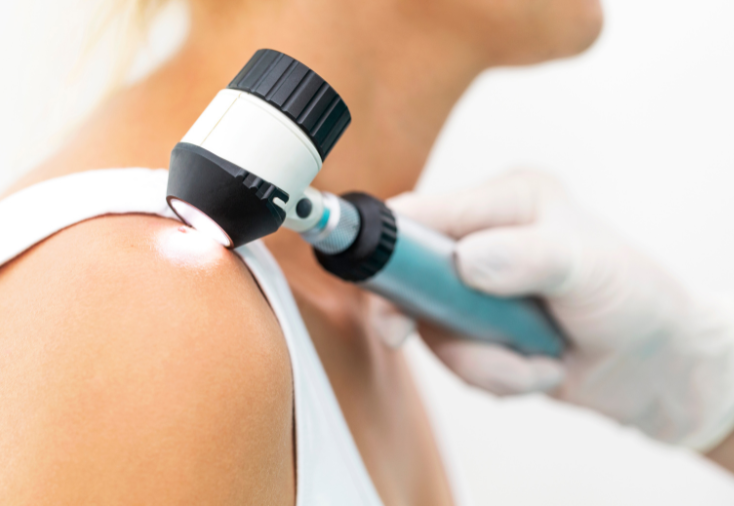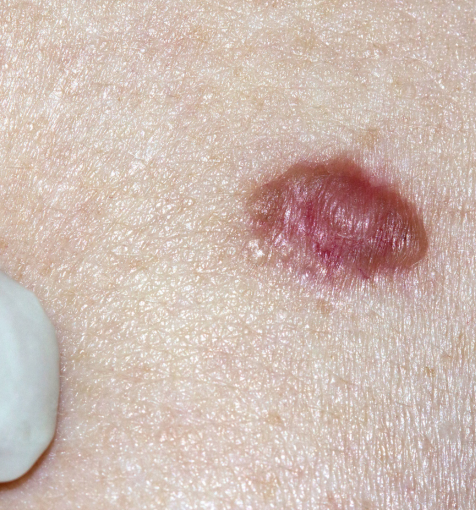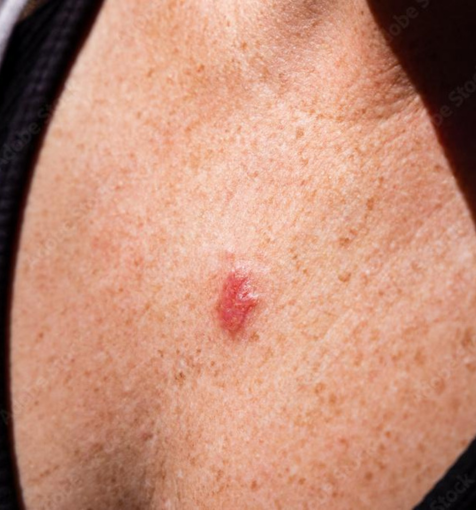Expert Care for the Most Common Form of Skin Cancer in New Jersey
Basal cell carcinoma (BCC) is the most common form of skin cancer, accounting for roughly 80% of all cases in the United States. This type of cancer develops in the outermost basal cells of the skin, often as a result of cumulative ultraviolet (UV) exposure from the sun or tanning beds. While BCC rarely spreads to other parts of the body, early detection and treatment are essential to prevent local tissue damage and ensure optimal outcomes.


BCC typically appears in areas of the skin most frequently exposed to the sun, including:
Face
Scalp
Ears
Neck
Hands
Key facts about basal cell carcinoma include:
Slow-growing: BCC usually develops gradually over months or years
Low metastatic risk: Rarely spreads to other parts of the body
Varied appearance: Can present in multiple forms, making self-exams and professional evaluations essential
Knowing the common appearances and risk factors for BCC helps patients detect lesions early and seek timely treatment. Those with fair skin, a history of sunburns, or extensive sun exposure are at higher risk and should maintain regular dermatologic checkups.
Basal cell carcinoma can present in several ways, often appearing subtle at first. Common signs include:
Small, smooth, pearly or pink growths
Flat, pink, or scaly patches that may appear irritated
Raised bumps with central indentations
Pimples or sores that do not heal and may bleed
Because BCC can mimic other skin conditions, professional evaluation is essential. Our dermatologists carefully examine suspicious lesions and provide precise diagnosis using clinical assessments and, when necessary, biopsies. Early detection not only prevents local tissue damage but also allows for minimally invasive treatment options.


At Skin & Laser Center of NJ, treatment plans are tailored to the type, size, and location of the BCC lesion. Available options include:
Surgical excision: Complete removal of cancerous tissue with minimal impact on surrounding skin
Mohs surgery: Layer-by-layer removal to ensure clear margins while preserving healthy tissue, especially for facial lesions
Topical therapies: Prescription creams for superficial BCCs
Follow-up monitoring: Regular skin checks to detect any recurrence or new lesions early
Our goal is to remove all cancerous tissue safely while maintaining optimal cosmetic results and long-term skin health.
Learn More About Basal Cell Carcinoma
In order to confirm a basal cell carcinoma diagnosis, your provider will need to perform a biopsy of the area. If the biopsy confirms the presence of cancer cells, there are several different treatment options available. Choosing the best treatment option depends on the size and location of the lesion, how deep the tumor extends, and the overall health of the patient.
Treatment options include:
While there are many effective treatments available at Skin & Laser Center of NJ, prevention is always the better option. There are steps everyone can take to help reduce the risk of developing skin cancer, including basal cell carcinoma, squamous cell carcinoma, and melanoma. These preventive measures include:
Patients interested in learning more about proactive preventive procedures—including photodynamic therapy and topical chemotherapy—can schedule an appointment with our care providers.
Convenient walk in hours available below. No appointment needed! Accepting private insurance and medicare. No medicaid plans.
Learn more about medical treatments at New Jersey’s Skin & Laser Center of NJ. Call 201-500-7525 or contact us online to schedule a consultation.